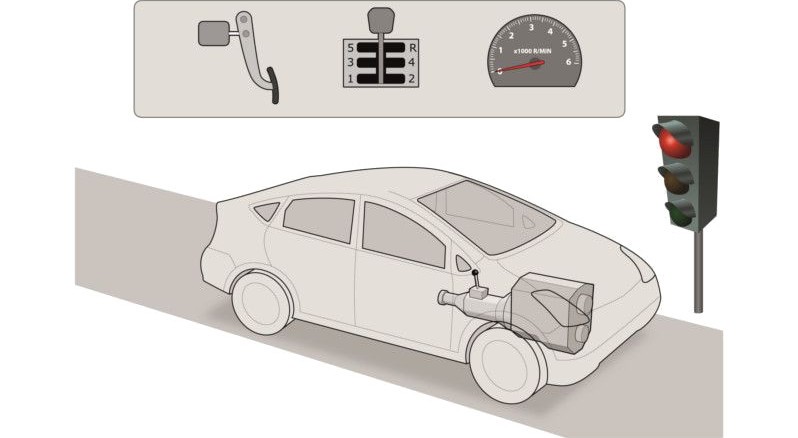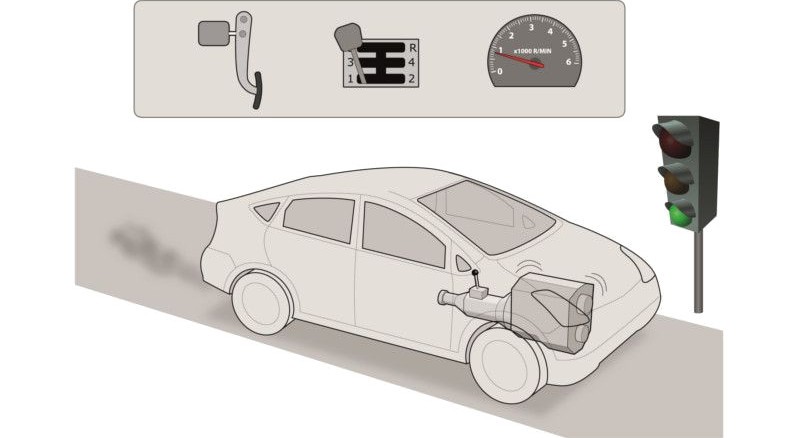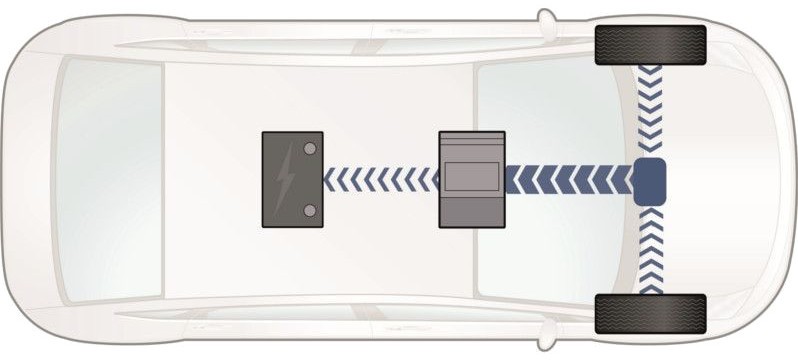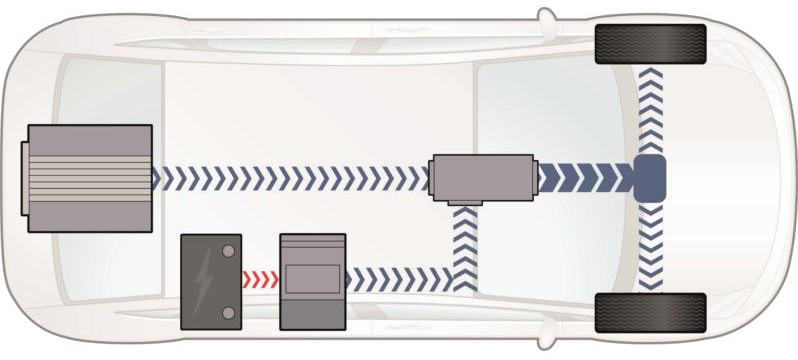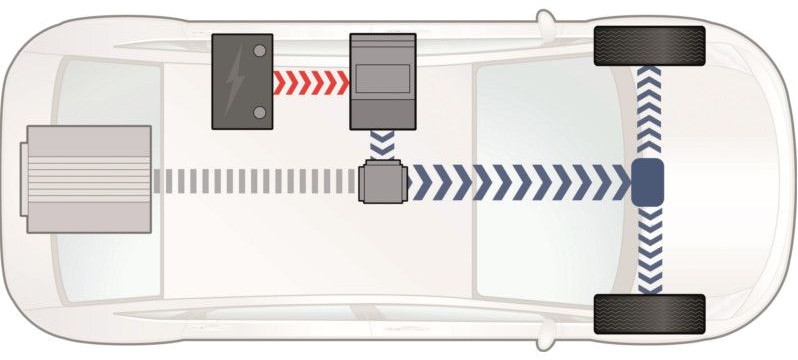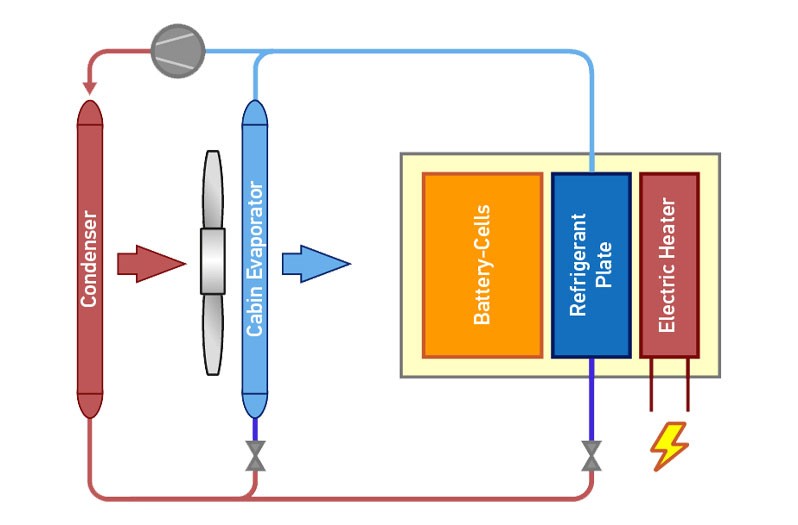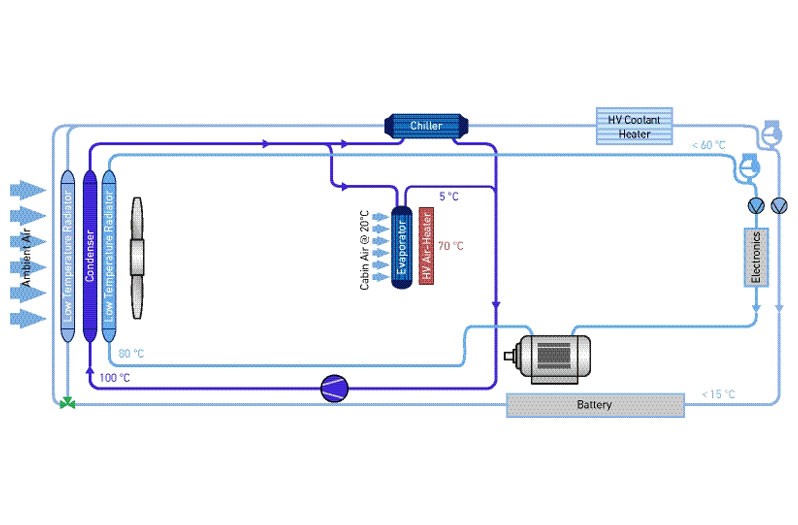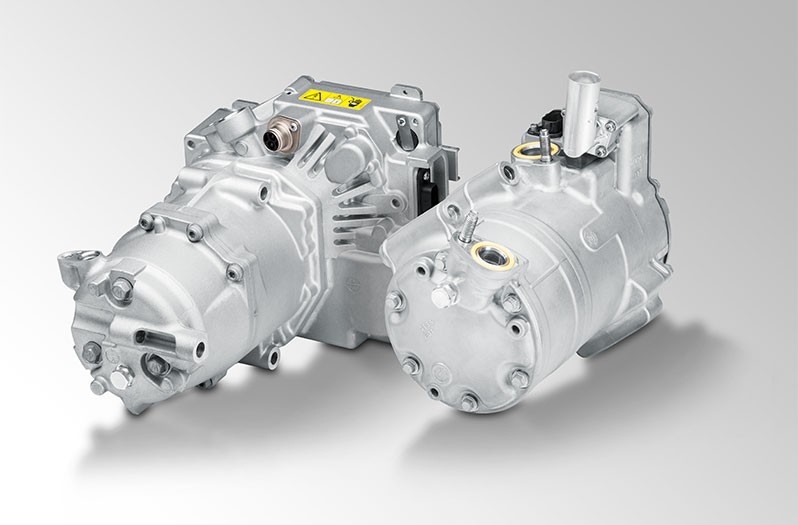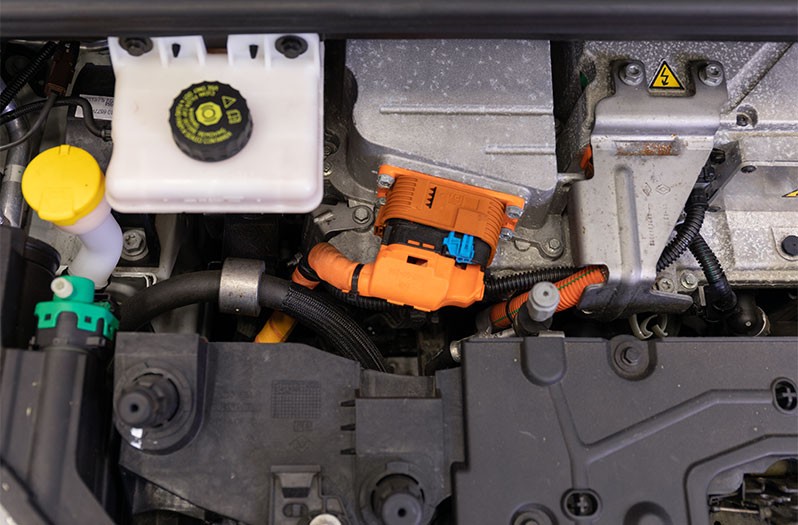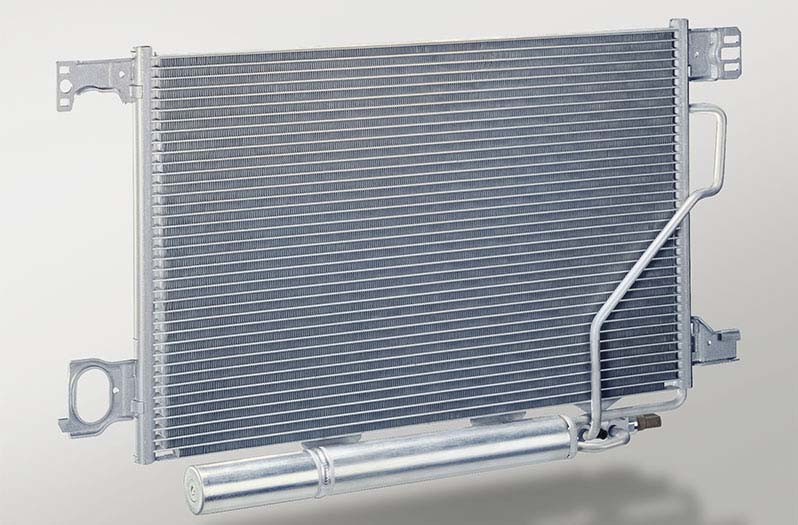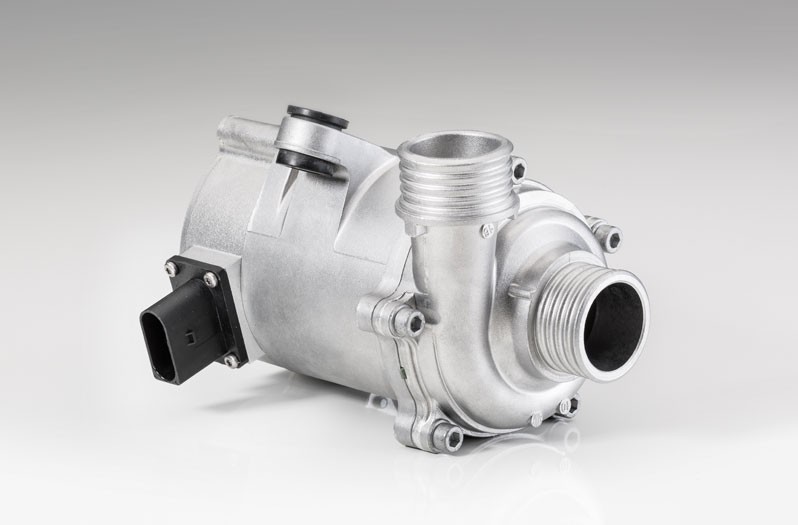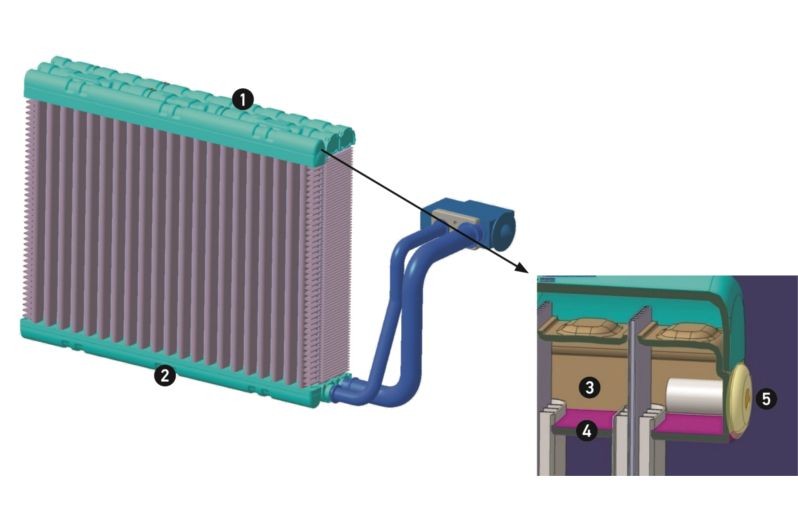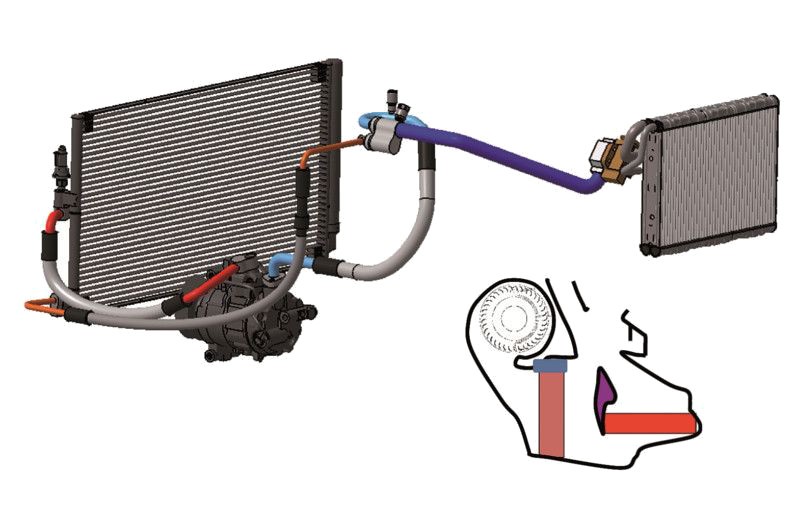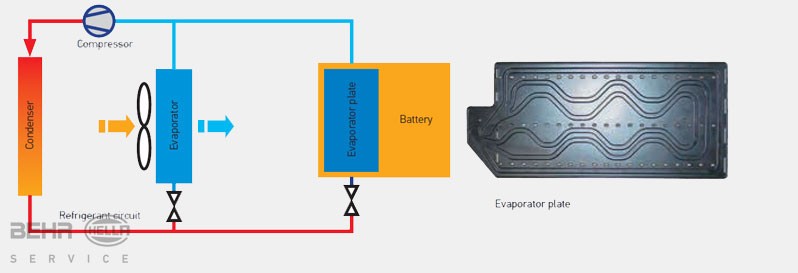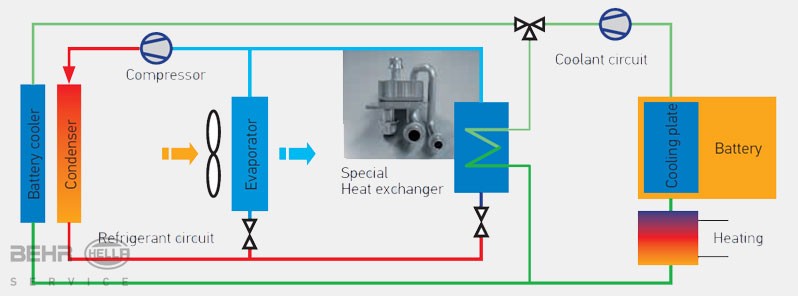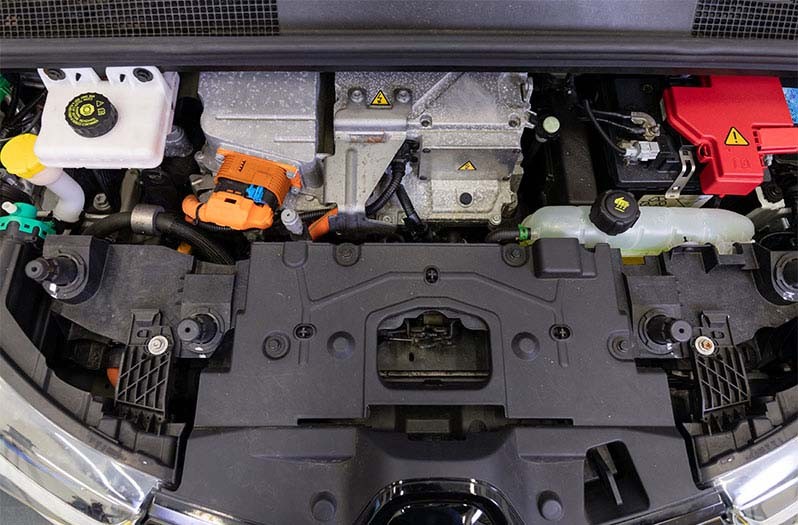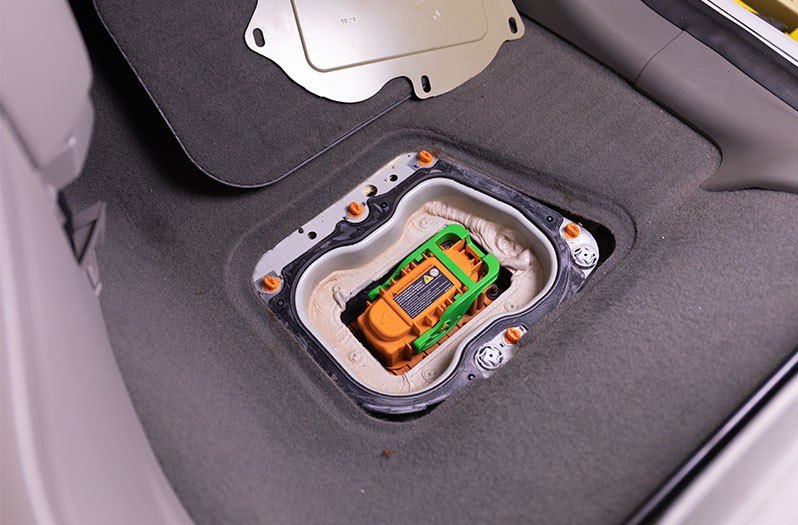By definition, an electric vehicle is a motor vehicle driven by an electric motor. The electrical energy required for its movement is obtained from a drive battery (accumulator), i.e. not from a fuel cell or a range extender. Since the electric car itself does not emit any relevant pollutants during operation, it is classified as an emission-free vehicle.
In electric vehicles, the wheels are driven by electric motors. Electrical energy is stored in accumulators in the form of one or more drive or supply batteries.
The electronically controlled electric motors can deliver their maximum torque even at standstill. Unlike internal combustion engines, they usually do not require a manual transmission and can accelerate strongly even at low speeds. Electric motors are quieter than petrol or diesel engines, almost vibration-free and emit no harmful exhaust emissions. Their efficiency of more than 90% is very high.
The relatively high weight of the accumulators is offset by the weight saving due to the elimination of the various components (engine, transmission, tank) of the combustion engine. Electric vehicles are therefore usually heavier than corresponding vehicles with combustion engines. The capacity of the battery(s) has a great influence on the vehicle weight and the price.
In the past, electric vehicles had short ranges with one battery charge. Recently, however, the number of electric cars that can reach distances of several hundred kilometres is increasing, for example: Tesla Model S, VW e-Golf, Smart electric drive, Nissan Leaf, Renault ZOE, BMW i3.
In order to further increase the range of electric vehicles, additional devices (usually in the form of an internal combustion engine) are sometimes used to generate electricity. This is referred to as the "range extender".


